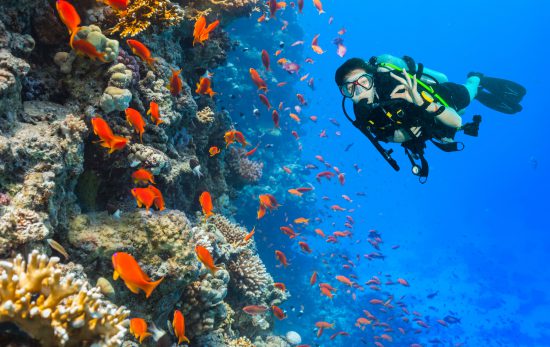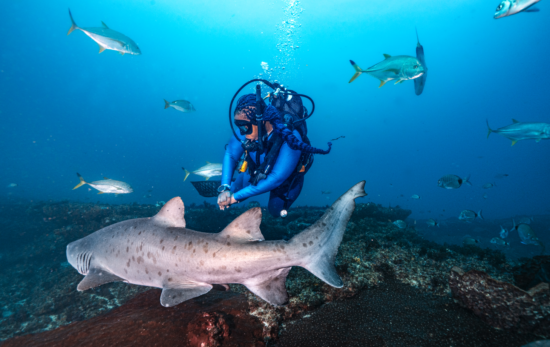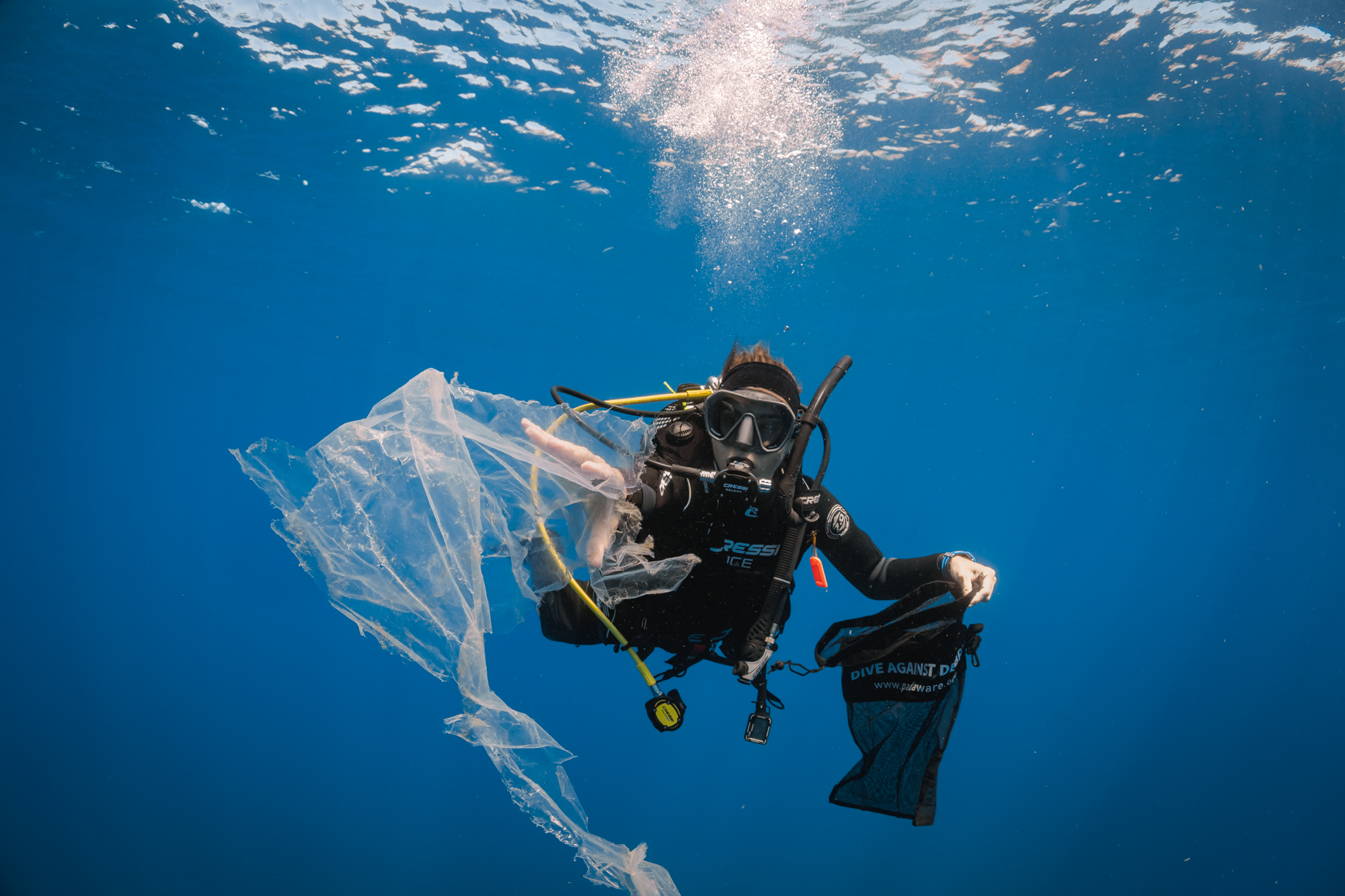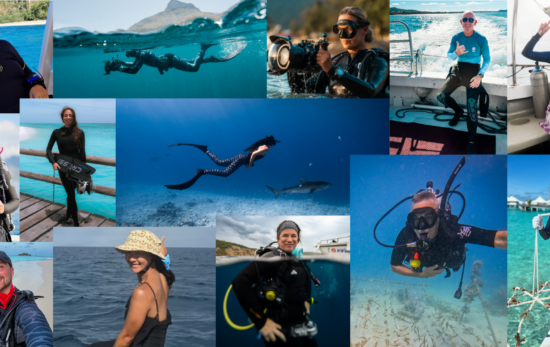It’s been a shaky start to the year for all of us. I hear the words “when everything is back to normal…” but with carbon emissions falling fast, wildlife showing up in abundance, and blue skies replacing smog in busy cities, I can’t help but think, maybe things shouldn’t go entirely back to normal? Perhaps we should aim for better than before.
Every little thing helps when it comes to protecting our seas and caring for the planet. The small changes we make today can make a massive impact in the long run. Supporting conservation efforts in day to day life is a way to ensure marine wildlife gets to live free in the future.
If you’re ready to contribute to the greater good, check out this monthly guide to taking action for marine conservation.
JANUARY – Cozy up and be inspired
Let’s start with an easy one, for just an hour or two each week, cozy up under a blanket and watch a program or documentary about global warming or marine conservation. I recommend “Before The Flood” or “Black Fish,” but there are so many more you can find… Or if you’re not much of a TV person, spend some time researching! There’s a lot of information out there at your fingertips. You can read about marine conservation at projectaware.org and discover ways that you can help. Gaining knowledge will motivate you to keep these habits up and even create new ones later on!
FEBRUARY – Grow a green thumb
It’s becoming trendier -and therefore easier- to grow your own fruit, vegetables and herbs at home. It’s estimated that 1 in 3 Americans are growing a green thumb and this holds many benefits; It saves on fuel emissions going to and from the grocery store, it’s a fun hobby, it’s healthier, but most of all it means you can spare the world from at least a little of the herbicides and pesticides that are contributing to climate change which is melting ice caps. This is a challenge you can do in honor of International Polar Bear Day on February 27th!
MARCH- Reduce non recyclable waste
Global Recycling Day is on March 18th, so this month we are focusing on reducing your non recyclable waste! Your challenge for week one is to not throw anything away that would usually go in the rubbish bin, keep all your non recyclable trash in bags (reusable bags of course) and see how much you’ve accumulated by the end of the week. Note how much there is and try to halve it in week two. Again in week three and so on for the whole month. This should make you more conscious of what you consume and inspire you to reduce waste and stick to recyclable products in the future.
APRIL- Be more energy efficient
The more energy we use, the more carbon emissions are being pumped into the environment. Consider products that run on natural gas instead of electricity, try to avoid buying fridges and freezers that are bigger than what you need, turn off lights and only run the dishwasher and washing machine when they are full. The oceans will appreciate your efforts on World Aquatic Animal day – April 3rd
JUNE – Ditch single-use plastics
Every adventure starts small; saving our ocean is no different. Celebrate World Oceans Day by joining the community of PADI Torchbearers coming together to protect our planet, above and below the surface. Check out PADI’s new virtual portal to help people everywhere connect with the ocean and support efforts to preserve and restore it, in whatever capacity possible during these times. Visit padi.com/conservation to take small (or large!) steps to save the ocean from home, in your communities and below the surface of your local waters.
JULY – Organize a clean-up
If it’s safe to do so in your area, gather a few of your friends and family together, go for a walk along your local beach or to a nearby park or forest and pick up any trash you find along the way. This will help you to stay fit, socialize, and help the planet. If big groups aren’t yet a possibility, go alone or walk the dog and pick up whatever you can- every little thing helps! The rubbish that gets left on beaches will probably find its way into the sea and break down into small pieces that fish will eat, and if you like to enjoy a fish supper, chances are it’ll end up in your body too. Yuck! Check in with your local PADI dive shop and join in a Dive Against Debrisâ to survey and remove trash that has made its way below the surface.
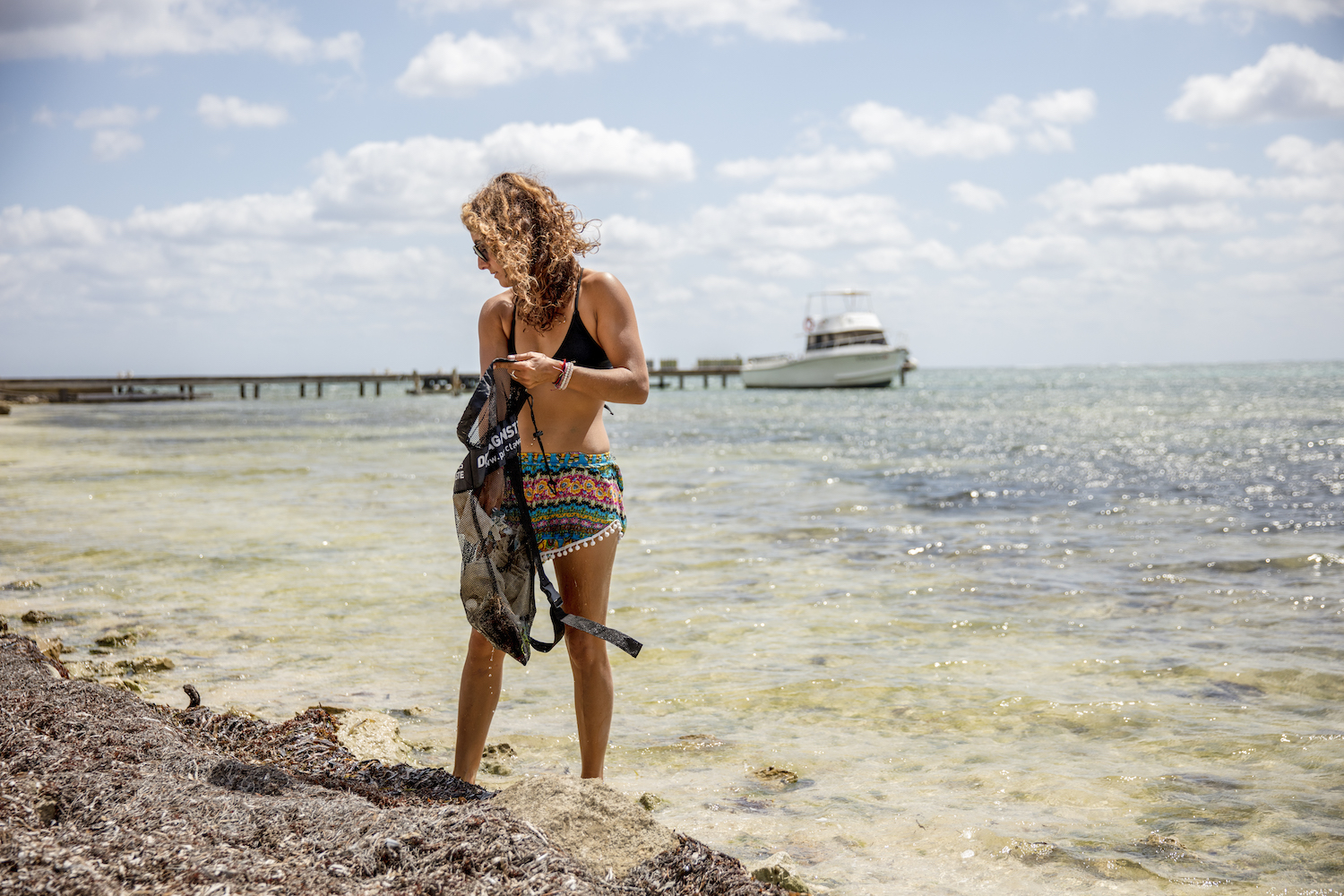
AUGUST – Smart food shopping
Not all seafood options are ethical, do a bit of research into which fish populations are healthy and managed to preserve communities. Also, with the livestock industry contributing more than 14% to greenhouse gases, many people are opting for meat-free Mondays! Even one day a week can reduce the impact on the environment.
SEPTEMBER – Conserve water
With clean water so readily available to most of us reading this article, it’s easy to take it for granted. But when we waste it, that water could be used for environmental or other purposes such as protecting endangered species. It doesn’t take much to turn the tap off while you clean your teeth, only run full loads in the washing machine and dishwasher, and cut your showers short when possible. It’s the small habits that can make all the difference. Conserving water will also save you money!
OCTOBER – Less household pollution
Pick your cleaning products carefully. Phosphates found in many laundry detergents find their way to lakes and seas and encourage algae growth, which can suffocate aquatic life, check the label to switch to a phosphate-free powder. You can also ditch those nasty chemicals in cleaning products and switch to more natural options such as baking soda and vinegar. Natural is always better!
NOVEMBER – Cut down on fuel emissions
Carpool, cycle, run, walk, or use public transport to get to work. Fuel emissions make up 29% of greenhouse gases, which impact the planet and our oceans significantly. This could also be a great excuse to exercise more, helping you to stay fit and healthy! We realize eliminating your fuel emissions entirely may not be realistic – consider taking part in a carbon offsetting program to help defend our ocean.

DECEMBER – Recycle and reuse
The holidays can be a very wasteful time. This month, try to make a conscious effort to recycle every time it’s possible. Reuse decorations from last year instead of buying new ones or get creative and make your decorations out of recycled materials!
Why not make it your New Year’s Resolution to keep up all these new habits?
These changes might seem small, and you may not always be conscious of them 24/7, but we need millions of people to make an effort imperfectly rather than a handful of people doing it perfectly. Every effort you make goes towards making the world a better home for us and the ocean a better home for our fishy friends.


